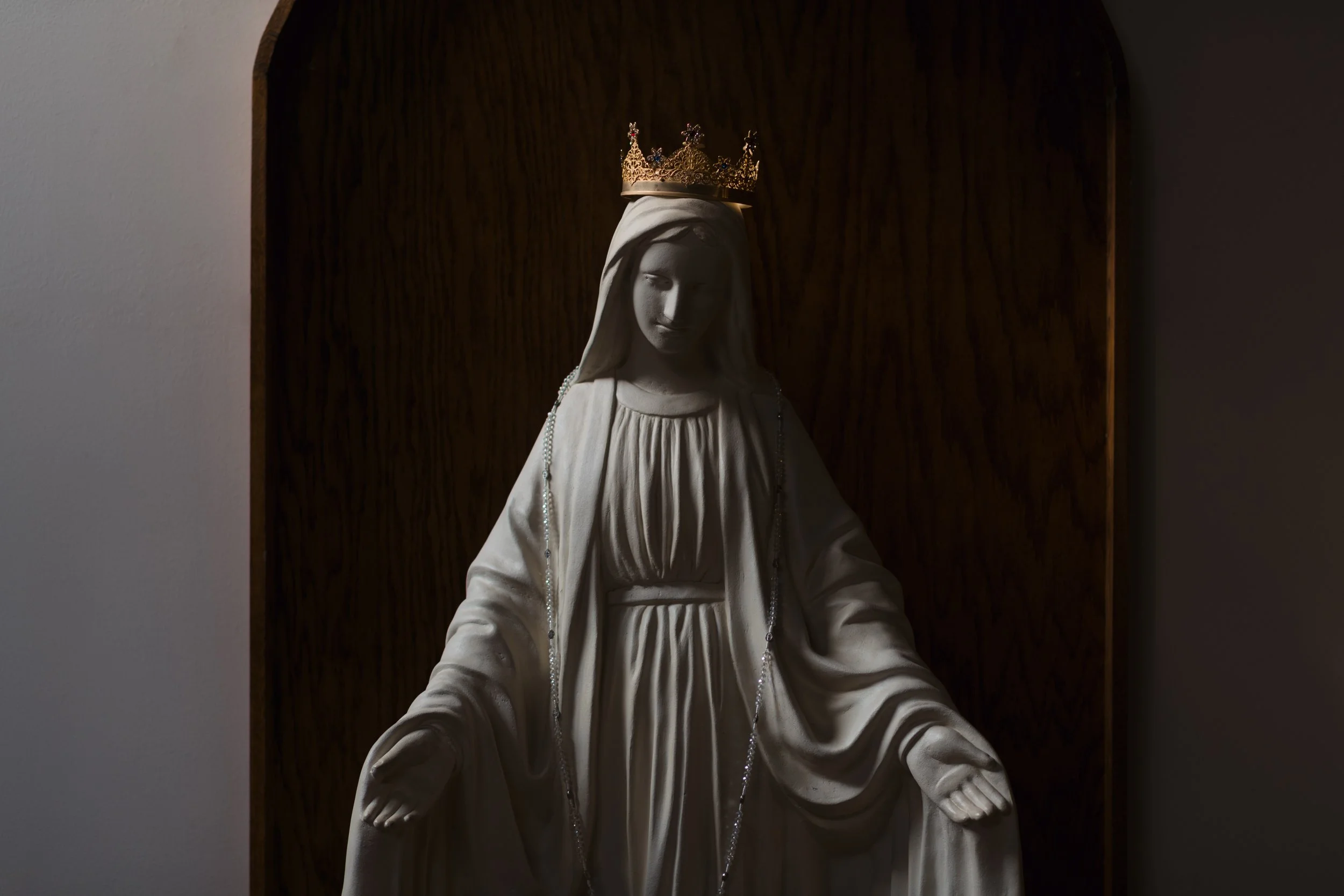Tomorrow we will fully enter into the season of Advent and once more approach a season of waiting.
Read MoreSo what are we to do to become properly evangelistic Christians again, and ones who don’t merely wind back the clock to earlier in the evangelical timeline, doomed to repeat the same tragic trajectory?
Read MoreAs someone who grew up attending churches that would self-identify as ‘evangelical,’ it has taken a number of years to come to terms with how that formation has shaped my approach to the subject of ‘evangelism.’
Read MoreCultures of optimization have been prevalent since the industrial revolution, but what distinguishes this current one is that it demands women to not just appear more perfect but actually to change themselves mentally and physically to meet an unattainable standard.
Read MoreIn our last post, we concluded that acedia or sloth is much more than the stereotype of the lazybones. Evagrius notes that “acedia is a simultaneous, long-lasting movement of anger and desire, whereby the former is angry with what is at hand, while the latter yearns for what is not present.”
Read MoreWe have faced the blank page. We have attended to silence. And we have accomplished an incredibly brave thing: we have gotten something on the page. At this point it is worthwhile to step back and ask what the creative act means.
Read MoreWe have practiced silence. We have listened for the voice of the Spirit. We have put pen to paper, brush to canvas, spade to soil, knitting needles to yarn. Now what?
Read MoreIn the next three blog posts, we will consider what I call “the creative act.” Before we dive in, let’s ask a question that may seem obvious: What is the creative act?
Read MoreIn our previous post, we talked about the extending of the horizon of the old covenant Sabbath through the Resurrection of our Lord, how He makes that Sabbath the occasion for a new work through His rising again. As should be apparent by now, the Sabbath means something very different for the Christian than it meant for the Jew, even if they are continuous with one another in the Person of Christ. It will help if we look to the Gospels for guidance.
Read MoreSabbath is remembrance. It is to remember and anticipate through a moment the world of God’s great seventh day, of Creation as it is known with God enthroned, consecrating all things and celebrating them with delight. But modern people have a difficult time approaching remembrance because they consider it a matter of ‘thinking’ rather than ‘being.’ This is not how the Scriptures communicate ‘remembrance’ to us.
Read MoreWe closed Part I by thinking about the futility of our toil and how it can only deliver expiration and collapse rather than real rest. We came to understand that we must somehow be returned to the Lord’s anointed rest, that seventh day of Creation that consecrated the whole creative work. I would like to propose that the means by which we are led back into that rest, despite our continual tendencies to avoid it, is to attend to the remembrance of the Sabbath as it becomes the Eucharist through its fulfillment in Christ. In this post, we will take a look at the first of the two.
Read MoreAs a recovering work-addict, I have been obliged to a keen awareness of the patterns of work and leisure that surround me. Frustratingly, I have often felt like a recovering alcoholic living in a walk-up above pub row, immersed in the ambient noise of what I imagine to be great enjoyment and satisfaction happening just downstairs. All around me are impulses to feed a beast who is just biding the time it needs to grow large enough to feed on me. Like those who’ve struggled with any substance or habit will know, the addiction isn’t about the thing but about something else behind, beneath, beyond it.
Read MoreLet us summarize three important points from the previous posts. First, the church year is the way the church experiences the true meaning of time that was revealed in the covenant God made with Israel, in the light of the fulfillment of both time and the covenant by Jesus Christ, the Son of God and Messiah of Israel. Second, this experience of time is rooted in the dynamic relationship between fulfillment and expectation, between the current experience of the kingdom "in the Spirit" and the longing for its fulfillment in the coming of Christ. Third, this experience of time requires commitment to disciplines of prayer that are rooted in the church year.
Read MoreThe life of Jesus Christ changed the way the people of God experience time. Jewish weekly time was rooted in six days of work leading to a Sabbath. Holy Week narrates Jesus’ fulfillment of this time. He entered Jerusalem on Palm Sunday, the first day of the week. He finished his work on Friday, the sixth day. This is the primary meaning of the words “It is finished” (John 19:30). The word “finished” is a form of the word “teleo” which is related to “telos.” On the cross, both time and the covenant were brought to their completion.
Read MoreIn Part I, we started by acknowledging the many ways we attempt to make peace without being born again to the life of God the Trinity, without seeking earnestly to enter peace in the rest of God the Father by being conformed to the likeness of Jesus the peacemaker and the Spirit the peace-giver. In Part II, we approached and considered again the Person of Jesus, He who is the peacemaker, seeking understanding of how He enables and empowers us to know the peace of God again. In this third and final essay, I think it is now possible for us to talk about what it means to be makers of peace like Him in the world.
Read MoreAs we come to terms with how we’ve attempted to create false peace, we begin to yearn for the true thing. Shalom, true peace, is the creation of God, the quality of life known by all things that walk in step with His will. We cannot make peace for ourselves. It is given, and we must receive it by the terms that it is given. We must enter into it and participate in it with a sense of humility and wonder.
Read MorePeace is a concept that emerges clearly in the Biblical account of Creation. The poetry of Genesis characterizes the creation of the cosmos as God making a dwelling place for Himself. Each part of the creation story involves a kind of call-and-response as God makes a place and then fills it with life, calling each of these dwellings and dwellers “good.” On the seventh day, when God takes His rest, it is meant to invoke an image that would have been common to those familiar with the architecture of an ancient temple: the god seated in the center of the temple to consecrate it and inaugurate its operation.
Read MoreLike all real and good things that take practice, prayer doesn’t always come easily. In fact, as we grow in prayer, we can expect to have seasons where it is downright difficult to pray. There are a lot of reasons for this. When the newness of a habit begins to wear off and we settle into a pattern, we begin to experience new challenges to our disciplines of prayer. It is important for us to remember that difficulties in prayer are not necessarily a sign we are doing something wrong. In fact, experiencing difficulty in prayer can be a sign that we are doing exactly what we need to do. Here are some of the common difficulties that face a person who is learning to pray.
Read MoreForgiveness is the first shape salvation takes in our lives. Through confession we experience forgiveness from God and are initiated into the ministry of reconciliation. We are then sent out to practice this ministry, first in the Church and then in the world. I say ‘practice’ here to cut against the notion that forgiveness is something at which we are immediately skilled. Forgiveness is a journey, the steps of which sometimes take months or years each. But forgiveness is real and it can bring us freedom from the power of our wounds. For this to happen, though, we have to get real about those hurts we would most like to avoid. Forgiveness begins where we really need to forgive, or it does not begin at all.
Read MoreThis post is about a way to approach contemplative prayer. I freely admit from the outset that I am no master of this art of ultimate trust in God’s love for me. Almost twenty years into my journey as an Anglican and over thirty into my life as a Christian, I am still unlearning the engrained habits of self-sufficiency.
Read More



















